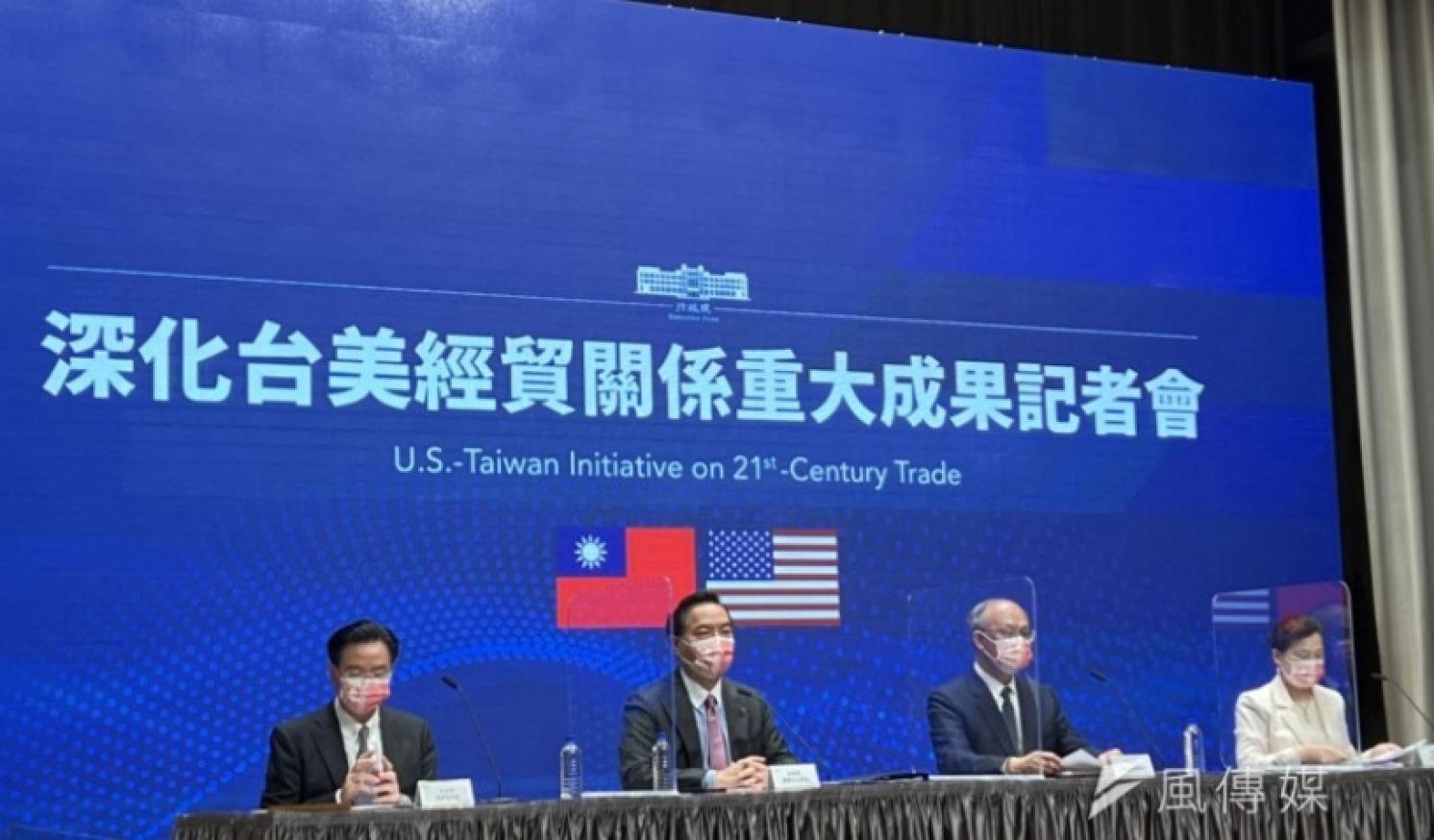
U.S.-Taiwan Bilateral Trade Agreement a Fake Diamond?
By Shi Wei-chuan
The Storm Media, March 10, 2023
The administration of President Tsai Ing-wen is bragging that Taiwan and the United States will sign a bilateral trade agreement (BTA). This is tantamount to forcing people to believe that artificial diamonds are as good as real ones.
On March 7, Legislator Chiu Chen-yuan of the Taiwan People’s Party (TPP) questioned that the United States Congress has not passed the new trade promotion authorization law, and the U.S. administrative units might have difficulties in signing the BTA. Premier Chen Chien-jen replied that the government has communicated and coordinated with their U.S. counterpart on related issues, and both sides certainly hope to sign the BTA as soon as possible. What Legislator Chiu talked about was the internal political reality of the United States. The hands of the U.S. executive branch are tied; the policy position of the Office of the United States Trade Representative (USTR) is also quite clear that they will not negotiate trade agreements involving tariffs with other countries, meaning a BTA would be impossible. However, Premier Chen stated that the United States also wants to sign the BTA. He is either lying or maintaining the tone that the Tsai administration has begun to promote at the end of last year: no matter what the outcome of the U.S.-Taiwan Initiative on 21st Century Trade is, it is a bilateral economic and trade agreement, a so-called BTA, quasi-BTA, or even pseudo-BTA. When the time comes, they will say boldly that fake diamonds are also diamonds.
In order to rationalize that fake diamonds are also diamonds, on March 3, government officials dealing with foreign affairs explained to the media: “They expected to see major concrete results soon. The agreement to be signed in the future will be similar to a BTA, but it has not yet touched on issues such as tariffs and market opening.” People in the foreign affairs field also claimed that this agreement is “typical in nature of BTA,” or it can be called “a mini-BTA without market-opening.” The government has tried hard to lie about whether Taiwan and the United States are discussing a BTA or not. They say “similar” at one point, “typical” at another, and then call it “a mini-BTA without market opening,” combining contradictory terms. At the same time, officials have to admit that there is no opening of the U.S. market.
The United States and Vietnam have signed a BTA. The core spirit is that the tariff on Vietnamese goods has been reduced from an average of 40 percent to 3 percent, and Vietnamese goods are immediately allowed to enter the American market. This is a genuine BTA. India also wants to negotiate market access and tariffs with the United States, but the United States refrains from doing so. Instead, the U.S. hopes to include India through the Indo-Pacific Economic Framework (IPEF). However, India unilaterally resists this scheme. Among the four issues covered by IPEF, including trade, supply chain, infrastructure, and clean energy, trade is the most important item to India. If the United States does not talk about tariffs, India will boycott it.
At this moment, the government is talking with the United States about the U.S.-Taiwan Initiative on 21st Century Trade, which is an agenda set by the United States. Taiwan will not get what it wants most, and it dares not follow India’s example to say no to the United States. On the contrary, it thinks everything America gives is a blessing, be it good or bad. American fart is a kind of perfume, a typical perfume, and a miniature version of a perfume. Other than using the three big letters of “BTA” as a political achievement, the government should explain: Being so blindly obedient to the United States, have we ever calculated our bargaining chips on hand? What are the future consultation process and the negotiation strategy of the government? Can Taiwan just passively sit and wait for America to extend the opportunity to actually talk about the reduction of tariffs on Taiwanese products and the sale of them to the U.S. market?
The author received his PhD. in law from Birbeck, University of London.